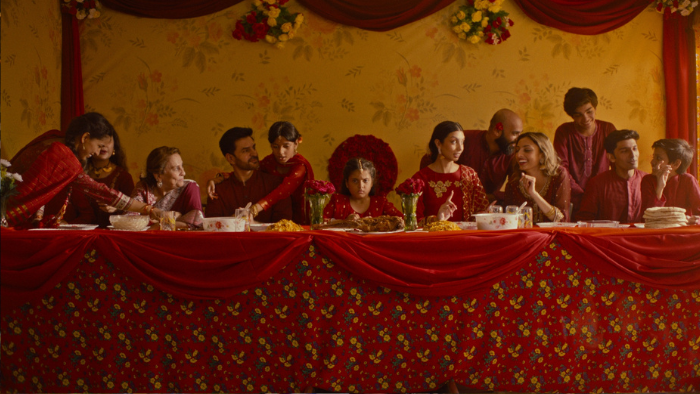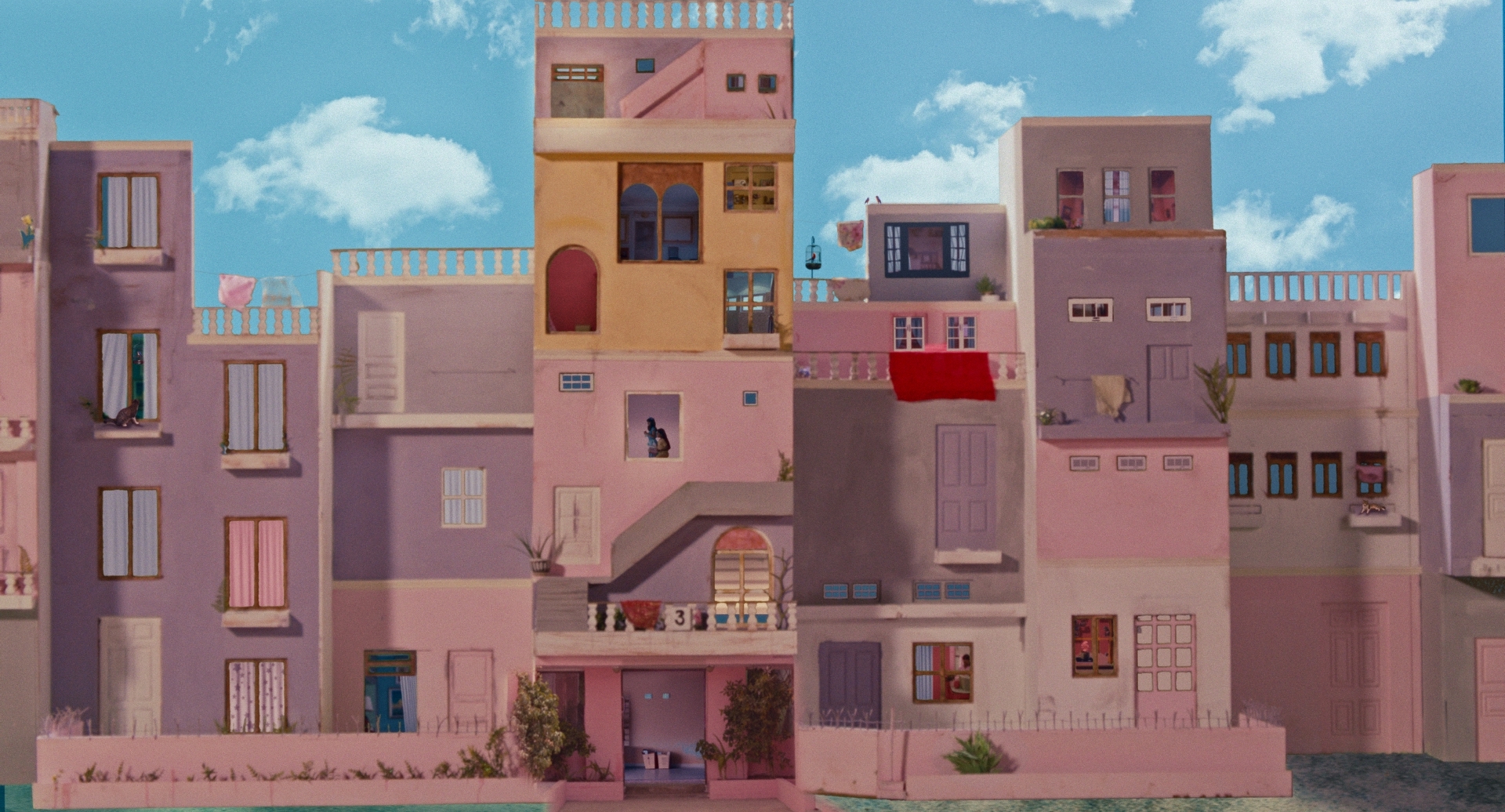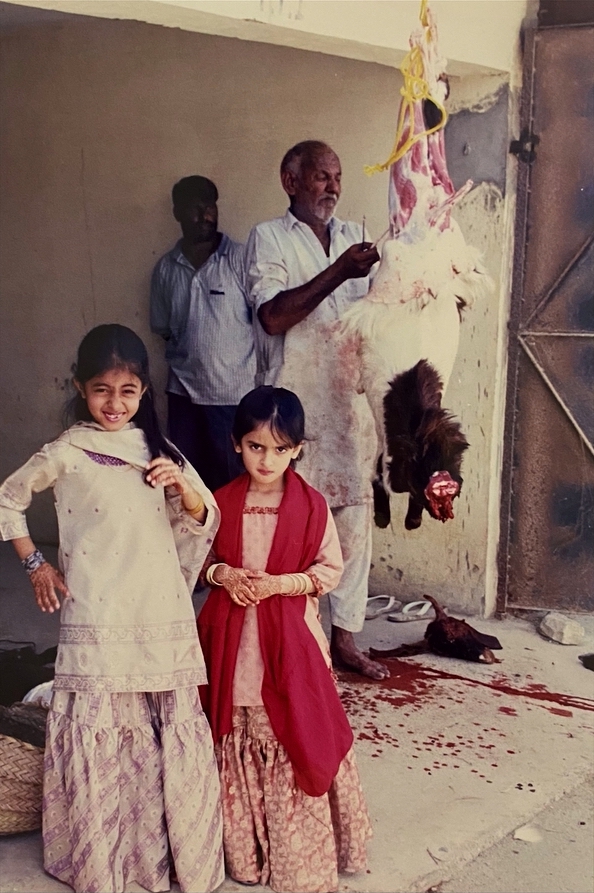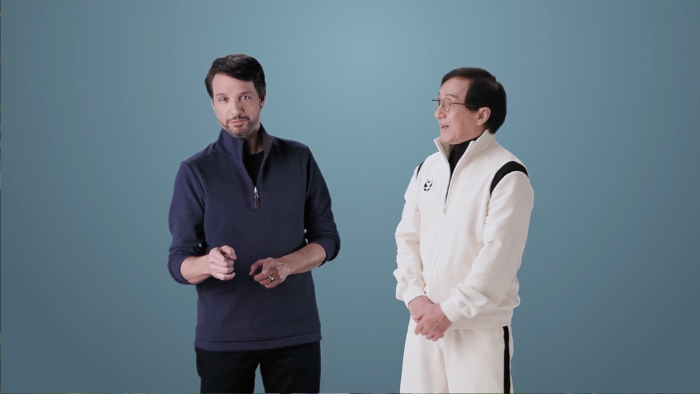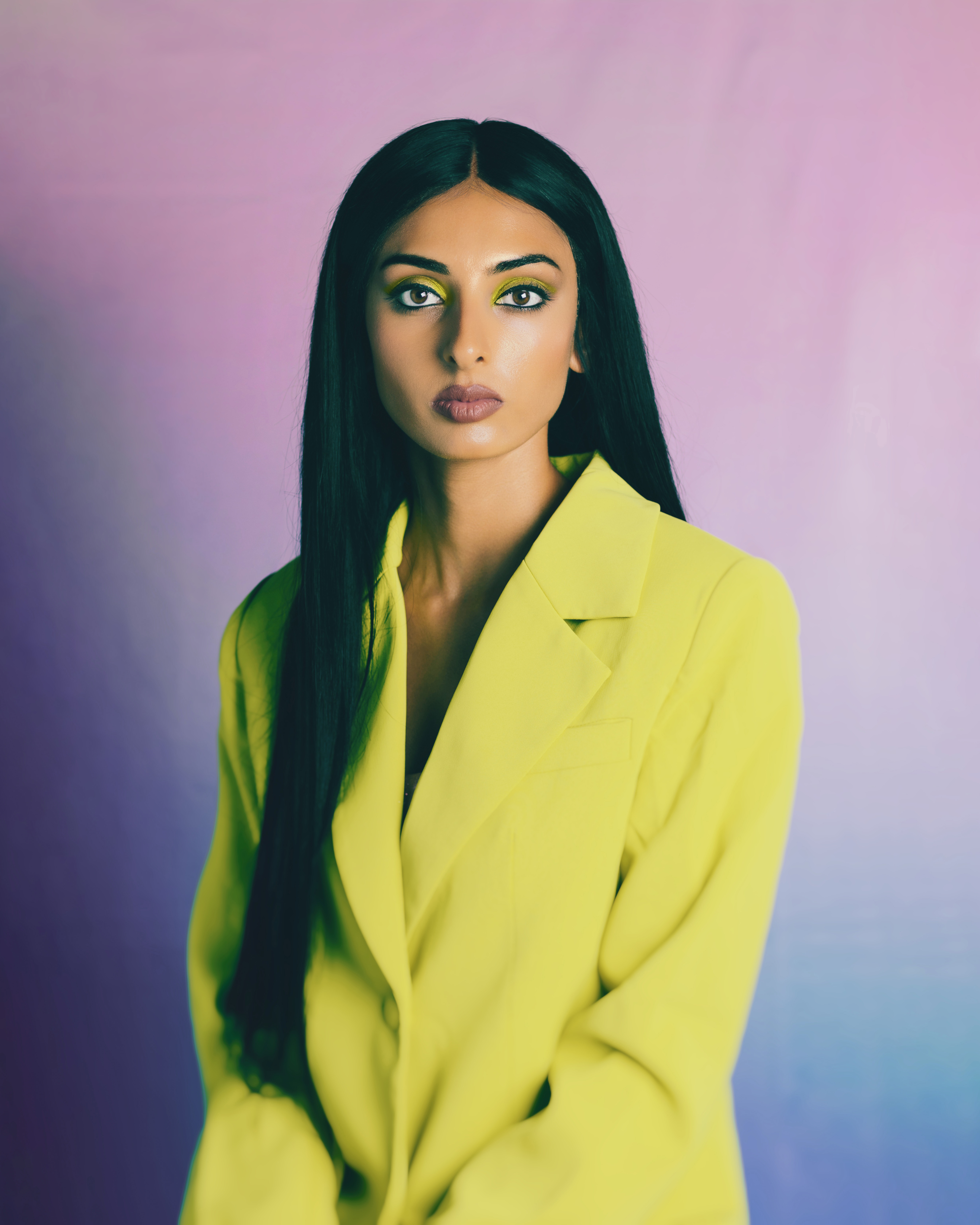
Mahnoor Euceph, a Pakistani-American writer and director, made her directorial debut with the short film “Eid Mubarak.” The short went on to win the Jury Award for Live Action Short at the New York International Children’s Film Festival, making the film Oscar-qualifying. It has played at over 40 film festivals including CAAMFest, SXSW Sydney, Tasveer, Atlanta ShortFest, and ShortShorts Film Festival & Asia, and currently holds 13 wins. The film is now officially in consideration for Best Live Action Short Film at the 96th Academy Awards. In this piece, Euceph discusses the story behind “Eid Mubarak.” (Photo courtesy of Mahnoor Euceph.)
I grew up praying with my mom and sister in the Muslim way, bending in various yoga-like positions while repeating words from the Quran. When my baby brother started walking, he would watch us. At the part of the prayer where we would sit on the ground, he would climb on my mom’s back. For him the ritual was a rollercoaster ride. We would all smile at his abundant joy, but continue on in prayer. It was the cutest thing I’d ever seen.
There are almost two billion Muslims today. Muslims have universal experiences like the one I shared above, experiences that we share with two billion other people—experiences like waking up for suhoor (or sehri in Pakistan) during Ramadan (Ramzan in Pakistan) and stuffing yourself full at 3 AM half asleep, like reciting the Ayatul Kursi prayer under your breath for protection before your airplane takes off, like being poetically in love with the moon. Though these are universal experiences for so much of the world, we hardly ever see them represented on the screen—let alone depicted as such—because so often, representations of us are not done by us or for us.
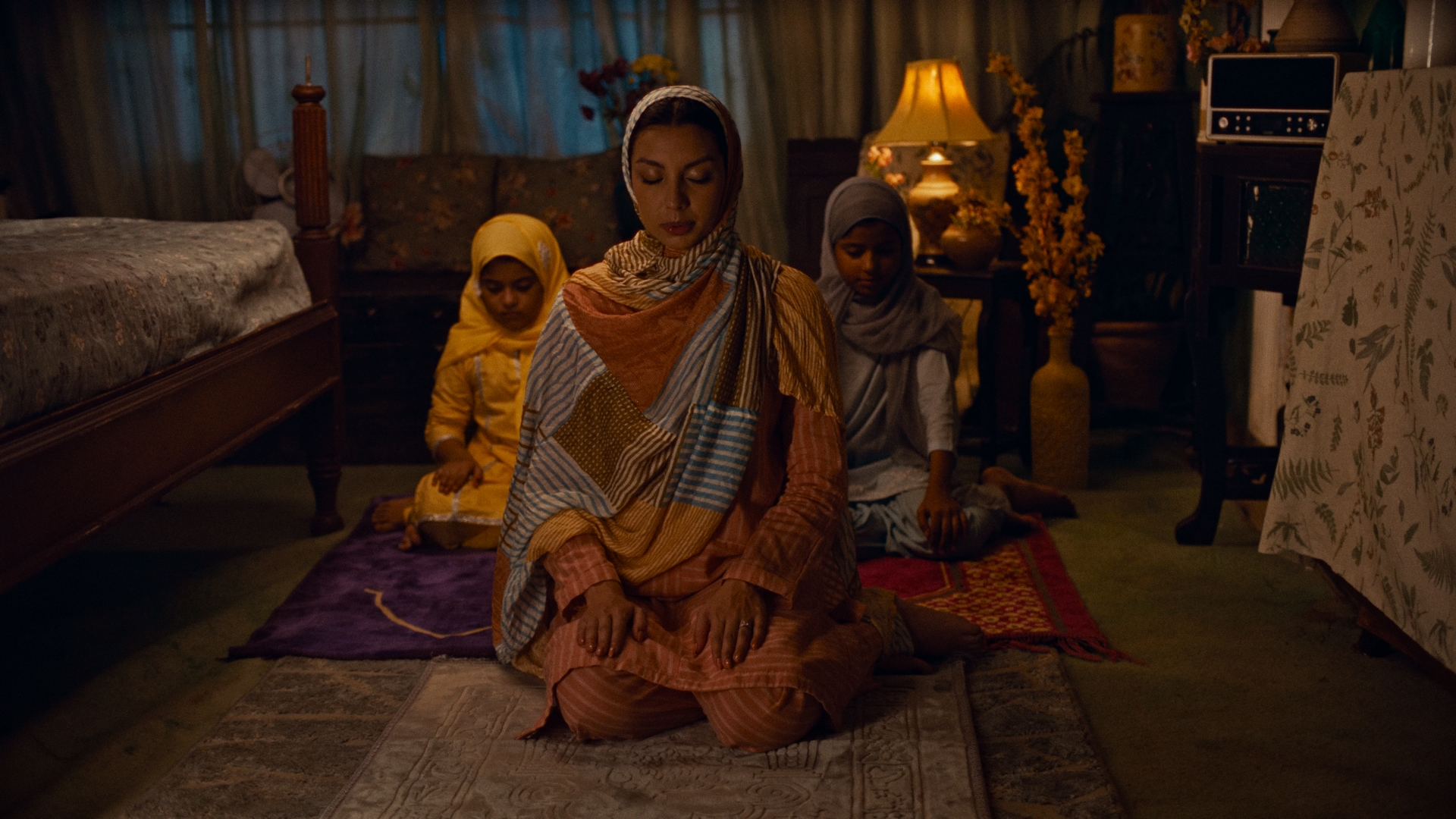
When I set out to make “Eid Mubarak,” I wanted to make a film about a universal Muslim experience by us and for us, through an American sensibility. I immigrated to Los Angeles at the age of eight from Pakistan. Since then, I went to art school at UCLA, and film school at USC. I wanted to combine my Pakistani lens with my American lens. That is the beauty of being an immigrant: reconciling the chaos of opposites to create something new.
“Eid Mubarak” is about a privileged Pakistani little girl who embarks on a mission to save her beloved pet goat from being sacrificed on the Muslim holiday of Eid al-Azha. Based on the Biblical story of Abraham’s sacrifice of his son, Muslims sacrifice an animal every year on Eid. We keep a third of the meat for our immediate family, give away a third of it to extended family, and donate a third of it to charity. In Pakistan, due to this charity, this is one of the only times of year that millions of Pakistanis in poverty eat meat.
Growing up in the US, however, whenever I saw discussions about Eid in the West, the holiday would be described as a barbaric, savage practice. When I would see such commentary, I would think about Thanksgiving, when every American indulges in a turkey based feast. I wondered why that wasn’t considered savage. Besides, that was not how I experienced Eid.
Before I immigrated, I remembered one particular Eid al-Azha in Pakistan. We had brought the sweetest goat, and for two weeks, that goat became an integral part of my life. It was a festive and joyous time. Everyday, my sister and I fed it, took it on walks, and played with it alongside our neighbor’s goats. But when Eid finally came, my father took my sister and I to witness the sacrifice. My father wanted me to understand that the meat I was eating so copiously—I was known as a carnivore as a kid, a point of pride for my Pathan grandmother—was not just candy. A precious life was taken in order for me to carelessly devour delicious mutton biryani.
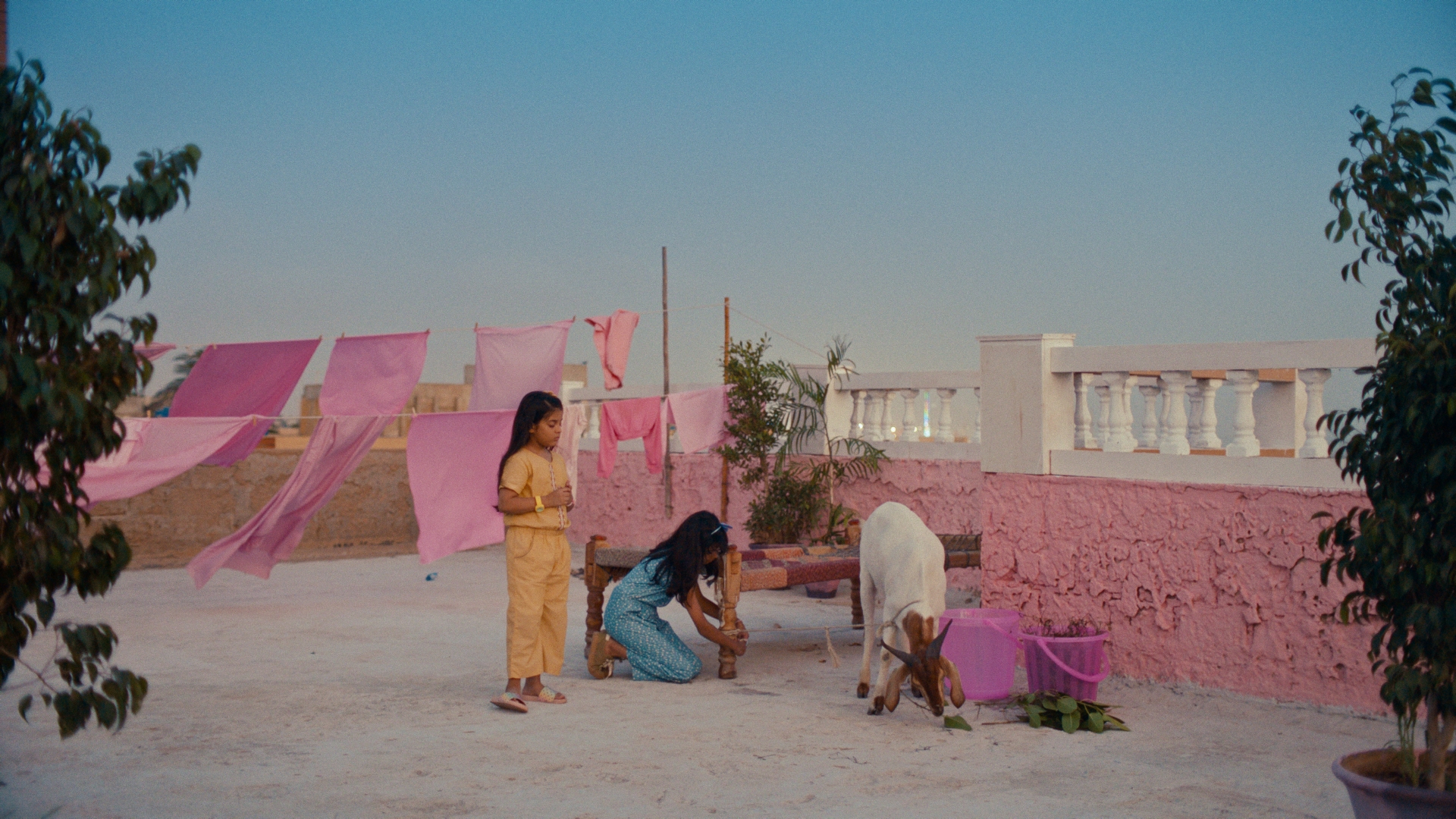
That experience has stayed with me my entire life. It taught me that being a Muslim means reconciling your cognitive dissonance as a human being by confronting the hard choices you have to make and then making a decision to live by your values, no matter the cost. What does Abraham’s sacrifice teach us? It is only a sacrifice if it hurts, if it costs you dearly. And, boy, did it hurt to watch my goat being sacrificed.
So I wrote the script. I won a spot in the Flip the Script fellowship. I raised money. I planned. I found my team. And then I arrived in Pakistan. It was only the second time I had been back since I immigrated as a child, eighteen years prior. As production began, I saw the home of my childhood reconstructed right before my eyes. We even shot in the same apartment complex that I grew up in. I watched as my beyond-talented lead actresses, Rubab Rasheed and Momina Salman, recreated my memories. It was like living in a beautiful fever dream.
For the film, I made key choices to highlight overlooked voices—of women, of people of color. It was crucial to me that this was made authentically through the guidance of a diverse team. I also wanted to flip the script visually. For example, even though we Muslims believe in Jesus as a prophet, we are not afforded any claim to Biblical traditions. So, using inspirations from biblical paintings from the High Renaissance, I placed brown girls where there had only been white men. I wanted the imagery of this film to be quietly revolutionary, to challenge the depictions of Muslims and Pakistanis in every way possible and to combine East with West. I referenced Wes Anderson referencing Satyajit Ray. I painted the Karachi of my memories in girly pinks and pastels, referencing Barbies and Disney fairytales but also the paintings of Nainsukh and Abdur Rahman Chughtai. I referenced my own parents who are still very much in love thirty years later, and showed two young Pakistani parents in love on the screen. I showed all different kinds of Pakistani Muslim girls and women, none of them oppressed by a violent Muslim man, none of them needing to take off a hijab to be liberated.
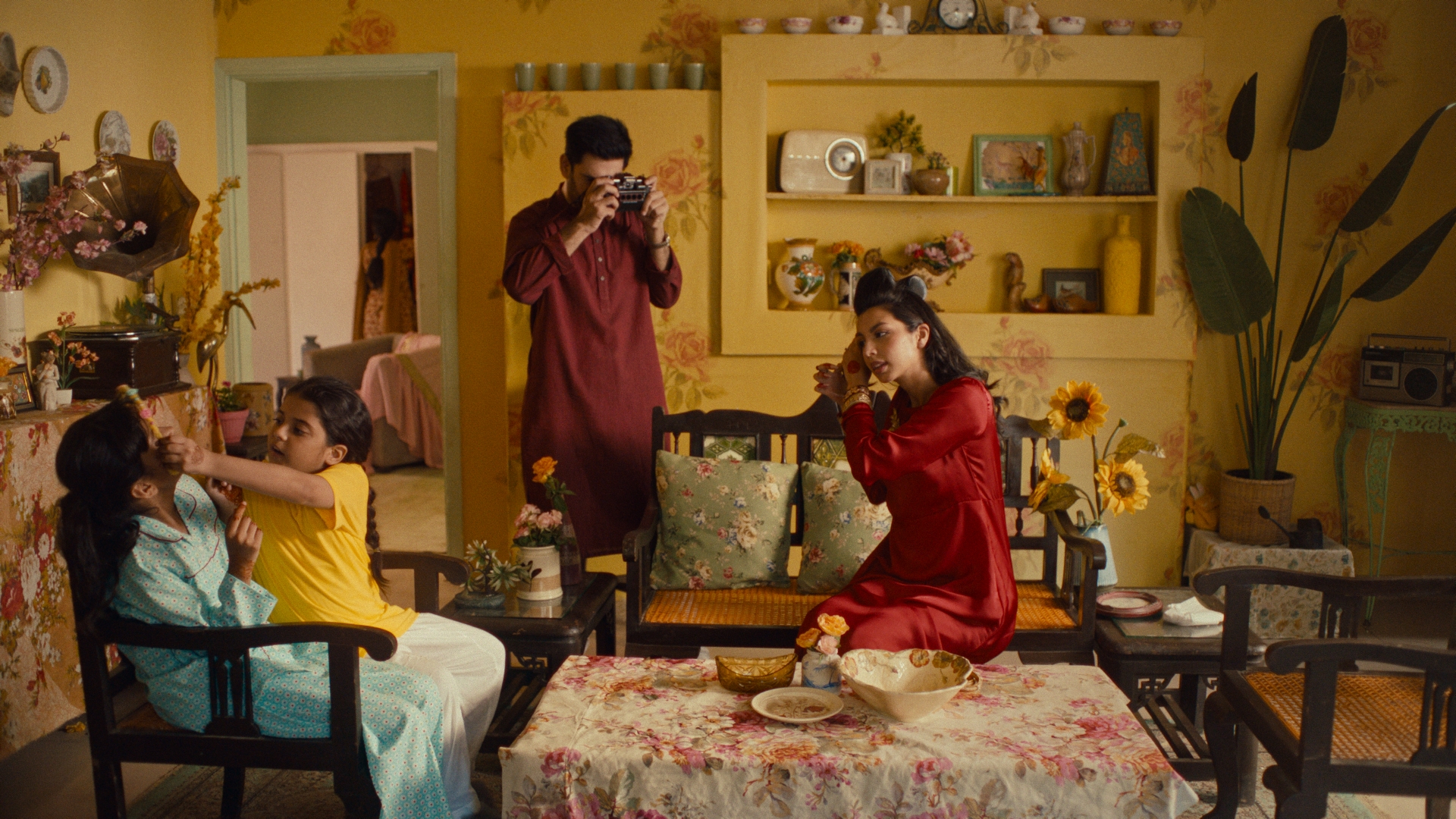
I chose to show this story through the eyes of a Pakistani Muslim little girl—a willful, mischievous, determined, empathetic girl—a person whose voice is so often silenced, whose opinions are so often overlooked. By showing this world through Iman’s eyes, I hoped to implement a sort of tabula rasa technique, so that the audience can be educated with her, without any preconceived biases. America is a country of immigrants, and I want to show my fellow Americans how beautiful a different way of thinking can be.
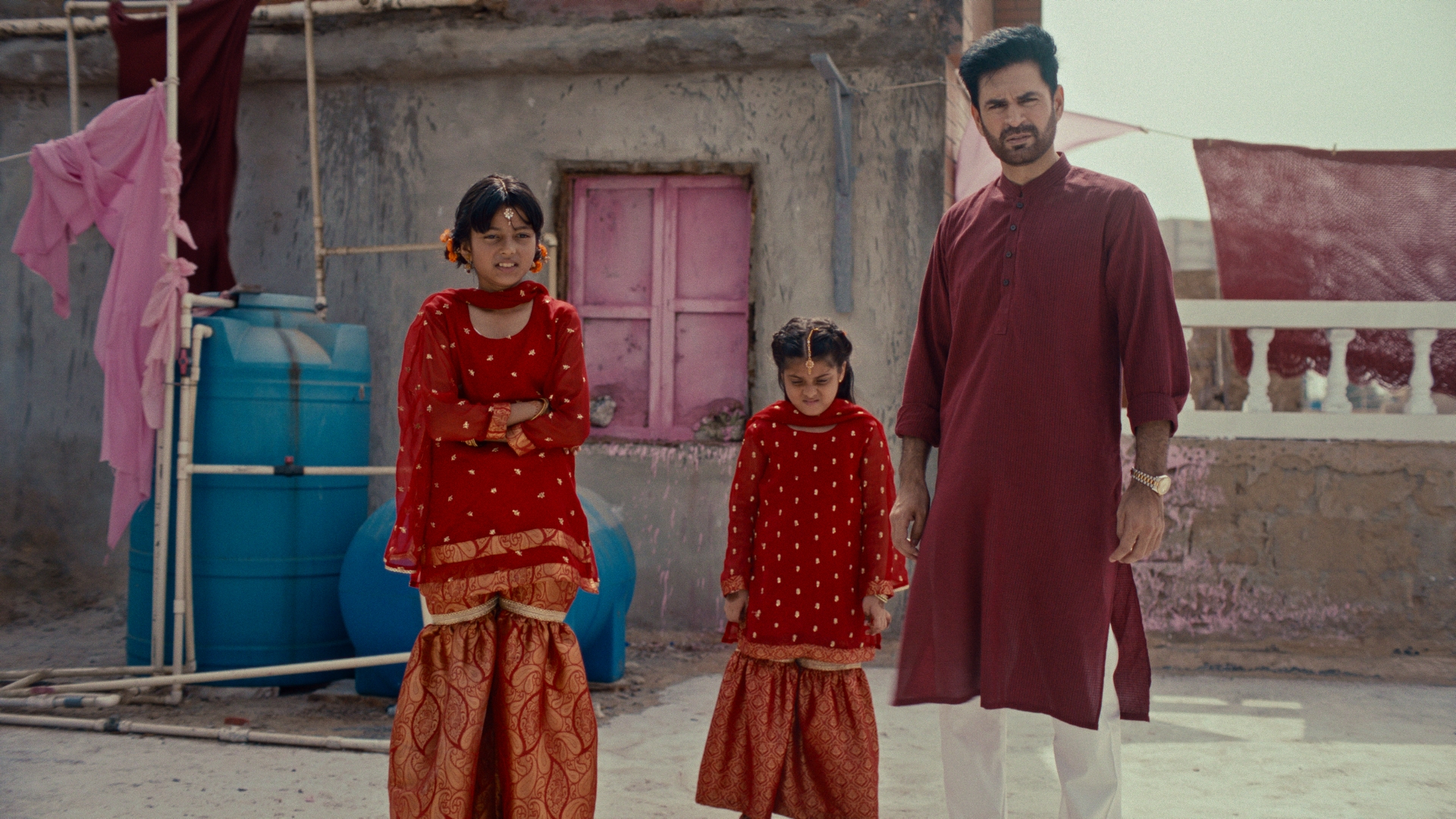
Sometimes it feels like you are shouting into a void, but still our voices matter. Our lives matter. We are alive. We are here to stay. We are free to be who we want, and who we are is beautiful. Our cultures, traditions, and values are beautiful. We immigrants love this country, the dream we left everything behind for, our biggest sacrifice. It’s time it loves us back.
With that, I hope the next time you hear the words, “Eid Mubarak,” you think of something different, perhaps of Iman and Barfi, of community, of a beautiful country called Pakistan, of our responsibility as humans, and of childhood—that wondrous, magical place we leave behind when we grow up.


